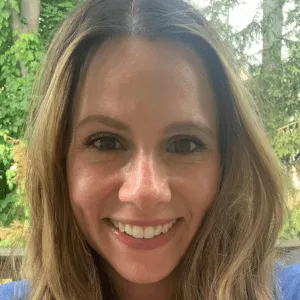Buying a home is no small feat — the median sale price for homes in December 2024 was $385,000 according to CoreLogic. However, there are programs designed to help if you’re buying a home for the first time. You may be able to get reduced interest rates, funds to cover your upfront costs, and more. It's even possible to qualify for some of these programs if you've owned a home in the past, as long as you meet other eligibility criteria.
What are first-time homebuyer programs?
First-time homebuyer programs are designed to help buyers purchase residential property.
These programs "typically provide assistance in the form of closing cost credits, lower down payment requirements, and reduced rates," says Sarah DeFlorio, vice president of mortgage banking at William Raveis Mortgage. "Banks want to support this segment of the market as part of the overall goal of making quality and affordable housing available to all."
Eligibility criteria, such as income limits or minimum credit score requirements, vary with each program. You may also need to show you're a first-time homebuyer or that you haven’t owned a home within the last three years.
Note:
Some mortgages that are popular with first-time buyers, such as FHA loans, don't have the first-time homebuyer requirement at all.
How do federal programs assist first-time home buyers?
Federal government agencies help buyers purchase homes by offering two main types of assistance.
Federally insured mortgages
Different federal agencies insure mortgage loans to promote homeownership while protecting lenders against potential losses. Because lenders take on less risk with federally insured loans, they can set less stringent eligibility requirements and offer lower interest rates. Government-backed mortgage programs include:
- FHA loans: These loans are insured by the Federal Housing Administration, or FHA. Buyers may qualify for an FHA loan with a minimum down payment of 3.5% (and a credit score of at least 580) or a down payment of 10% (and a credit score between 500 and 579). The home must be a one- to four-unit property, and you'll need to use it as your primary residence for at least one year. Additionally, you may pay mortgage insurance for the life of the loan.
- USDA loans: These mortgages are guaranteed by the U.S. Department of Agriculture, or USDA. To qualify for a USDA loan, borrowers must purchase property in a designated rural area and meet income criteria, and they'll pay mortgage insurance for the life of the loan. But there's no down payment requirement.
- VA loans: The Department of Veterans Affairs (VA) guarantees these home loans for eligible military members, veterans, and surviving spouses. VA loans come with 0% down payments, no mortgage insurance, flexible credit score requirements, competitive interest rates, and generally no loan limits. But there are closing costs, including a funding fee that ranges between 1.25% and 3.3% of the loan amount.
Tip:
The VA loan funding fee varies based on whether you’ve used this type of loan before and if you choose to make a down payment. If it’s the first time you’re using this loan, the maximum funding fee is 2.15% (which would cost $8,600 for a $400,000 loan).
Federally run programs
In addition to insuring home loans, federal agencies also run other programs to help buyers afford homes. Some of these programs include:
- Good Neighbor Next Door program: The U.S. Department of Housing and Urban Development (HUD) runs the Good Neighbor Next Door program to help public servants qualify for mortgages in the communities they serve. Law enforcement officers, K-12 teachers, firefighters, and emergency medical technicians can buy select homes at up to 50% off of the list price. To qualify, you must work in one of the approved industries, buy a home in a designated revitalization area, and plan to live in the home for at least three years.
- Fannie Mae and Freddie Mac: These corporations provide liquidity in the mortgage market by purchasing conforming loans — mortgages that meet requirements set by Fannie Mae and Freddie Mac — from lenders. You can get one of these conventional loans with as little as 3% down if your credit score is 620 or higher and you meet other criteria. You may also need to be a first-time homebuyer and may pay private mortgage insurance (PMI) if your down payment is less than 20%.
What state-specific programs are available for first-time homebuyers?
Many states and municipalities combine down payment assistance with special home loans that come with affordable features, like low interest rates and no PMI. You may even qualify for tax credits you can use on your federal tax return.
Eligibility criteria vary with each program. For instance, you may need to work in a certain profession, buy a home in a particular geographic area, or meet income restrictions. Most of these programs require you to be a first-time homebuyer, which typically means you haven't owned your residence within the past three years.
To check out options in your area, visit your local state housing finance agency and search through programs for homebuyers. Aid available from these agencies could include:
- Grant money: A grant is a financial award that doesn't need to be repaid if you use the funds for a specific purpose. Many local programs offer grants to help first-time buyers cover the upfront costs of homeownership.
- Subordinate loan: A subordinate loan is designed to cover your down payment and closing costs. It's sometimes called a "silent second" mortgage because payments may be deferred until your home is sold, refinanced, or paid in full. This helps keep your monthly mortgage payment affordable.
- Forgivable loan: This is another type of loan that can cover your upfront costs. It's forgiven after you meet requirements, like using the home as your primary residence for a certain period of time.
- Federal tax credits: A Mortgage Credit Certificate, or MCC, provides a dollar-for-dollar reduction in your tax bill up to $2,000. If your local housing finance agency administers this program, you'll get the certificate from your lender.
What are the benefits of first-time home buyer programs?
If you’re a first-time homebuyer, these programs can make it easier for you to buy your first home by offering a form of financial assistance.
Here’s a closer look at some of the benefits they can provide:
Low down payments
The down payment is often the largest cost associated with buying a home, which often makes it the largest obstacle for first-time homebuyers. According to the National Association of REALTORS®, the typical down payment for a first-time homebuyer in 2024 was 9%, compared to 23% for repeat buyers. First-time homebuyer programs typically have low minimum down payments to help would-be buyers overcome this hurdle. Programs may offer down payment assistance in the form of grants, forgivable loans, or payment-deferred loans.
Help with closing costs
Since closing costs can often add up to an additional 2% to 5% of the home’s sale price, first-time homebuyers often need help covering these costs as well. Similar to your down payment, you may be able to get a grant or a loan to offset the amount of money that you need to bring to the closing table.
Flexible qualifying standards
Government-insured loans offer a guarantee that protects the lender from taking a loss if you default on the loan. In exchange for this reassurance, lenders offer more flexible qualifying standards and lower down payment requirements on these loans.
Homebuyer education
If you aren’t sure where to start, many first-time homebuyer programs include an education component. These classes and resources can help you learn about loan options, the buying process, and how to apply for a mortgage.
How to qualify for first-time homebuyer programs?
All first-time homebuyer programs have eligibility criteria, but the specific requirements vary with each program. Here are some examples of requirements you may need to fulfill:
- Use the home as your primary residence, sometimes for a specific time frame
- Meet minimum credit score requirements
- Be a first-time homebuyer
- Buy a home in a designated area
- Meet income limits for your area
- Apply for a home loan through a participating lender
- Follow home price limits
DeFlorio recommends familiarizing yourself with the options before you put in offers on a home. "Many of the state grant programs require that you register with them prior to making a mortgage application," DeFlorio says.
Tip:
If you're unsure of which home loan works best for you, consider talking with a mortgage broker. These professionals can help you understand the different loan programs and shop the best deal for you.
First-time home buyer programs FAQ
What are the eligibility criteria for first-time homebuyer programs?
Open
How do down payment assistance programs work?
Open
Are there tax benefits for first-time homebuyers?
Open


